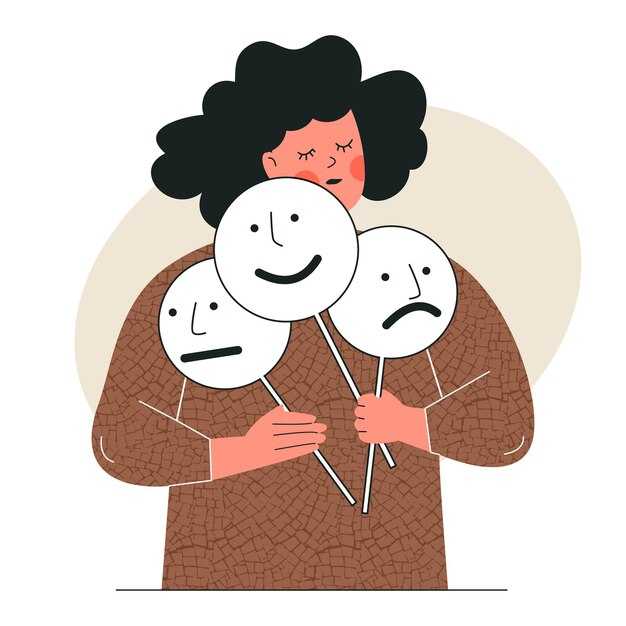Most people lose an avoidant the very moment that person withdraws. It’s rarely the silence itself that ends things; it’s what follows that silence. A single sentence can pry open a locked heart. Another sentence can bolt it shut for good. There’s a widespread myth that needs dismantling. Many assume avoidant people shut down because they don’t care — that their quietness signals coldness, indifference, or spite. That couldn’t be farther from the truth. When an avoidant pulls away, it isn’t from a lack of feeling; it’s because they feel too much. Their nervous system has slammed on the brakes. To them, closeness feels threatening — not because they don’t crave it, but because the craving itself is terrifying. Picture it: every time intimacy presses in, an internal alarm blares. They aren’t deliberately choosing to ignore you; their body is screaming for distance. And here’s where most people make a critical error: they respond by chasing — demanding explanations, lobbing cutting questions and accusations. “Why are you ignoring me? Do you even care?” In that instant the connection doesn’t merely weaken — it shatters. So let’s clear this up: avoidants don’t withdraw because they’re heartless. They retreat because a primitive survival response has taken over. If you use the right words, you won’t trigger that alarm — you’ll soothe it. You become the steady, safe presence they’ve been longing for. Later, you will learn the specific phrases that do this. Why do words carry so much weight? Because when an avoidant shuts down, their body has already shifted into survival mode. Their nervous system is no longer negotiating romance, logic, or fairness; it’s asking one raw question: “Am I safe?” Every word you speak is interpreted either as proof of safety or proof of danger. Think of it like handling a frightened animal — imagine calming a skittish wild horse. Sudden movements, jerking the reins, or shouting will only make it bolt; not because it dislikes you, but because its nervous system senses threat. Speak softly, move deliberately, and give it room, and the same horse will relax. Human nervous systems operate the same way. Avoidant people aren’t scheming or manipulating; they’re protecting themselves from what feels like an emotional blaze. That’s why the wrong words feel like sparks and the right ones feel like rain. Here’s an example to make that clear.

You panic and send message after message—Why are you ignoring me?—thinking you’re reaching out for connection. To them, however, that same impulse reads like pressure, proof that quiet equals danger. Their defenses rise. Now try swapping one line: Take the time you need. I’ll be here when you’re ready. Notice the shift. One approach sets off alarms; the other soothes them. The circumstance and the silence are identical, yet the results couldn’t be more different. Most people miss one crucial truth: avoidant people are hyper-aware of language. Not because they’re weak, but because words are how their nervous system checks for safety. Tone, rhythm, and intention all register. Every phrase sends a signal: Am I free to be myself, or am I trapped? The way you speak literally changes how their body responds to you. Pressure drives them away. Patience draws them nearer. That’s why so many relationships with avoidant partners unravel—not for lack of feeling, but because people simply don’t know the speech of safety. They escalate when softness is needed. They demand answers when what is required is steady presence. They pour flame on a wound that needs water. Words aren’t mere ornament; they regulate the nervous system. When you learn to talk to an avoidant’s system, you open a kind of love most people never experience.
Let’s step into a shutdown moment. If you don’t grasp what’s happening internally, each reaction you make will likely backfire. Picture a turtle pulling into its shell: outside, there’s silence and stillness; underneath, there’s turmoil. The turtle is not relaxed—it’s braced, scanning, waiting for safety before peeking out. That’s the internal state of an avoidant. Outwardly they may seem calm, detached, even indifferent, but inside their heart races, their chest tightens, their brain lights up as if a fire alarm went off. They aren’t scheming or seeking to punish; they’re in survival mode. Their body interprets closeness as threat and says, Retreat. The painful truth is that shutdown usually signals deep caring, not apathy. It’s like trying to drink from a firehose—the system can’t process the intensity, so it clamps down to avoid drowning. They close the valve not to exile you forever but to protect themselves from being overwhelmed. Imagine being trapped in that contradiction: yearning for connection while every cell screams that intimacy equals pain. This isn’t a choice; it’s an automatic response. Unless the surrounding environment feels safe, they can’t override it.
Another useful metaphor is a storm shelter. When warnings sound, people don’t stay out in the open; they head underground because the sky feels dangerous. For an avoidant, a shutdown functions as a shelter—temporary protection. Crucially, the shelter isn’t permanent. The turtle won’t live in its shell forever, and storms pass. When safety cues return, the avoidant peers out. What matters is what they find when they look: an angry, chasing, demanding person, or someone calm, steady, and patient enough to let them breathe? That single difference determines everything. Shutdown is survival, not rejection. The partner who recognizes that, stops personalizing it, and offers safety becomes the person the avoidant will trust and return to repeatedly.
Now let’s be blunt about common mistakes people make in these moments, because in most cases it’s not the shutdown itself that ends the connection, it’s the response to it. Chances are you’ve fallen into one of these traps. Mistake one: pressure. You sense the silence, panic sets in, and you try to force closeness: Why won’t you talk to me? We need to sort this out now before it gets worse. If you loved me you’d answer me. From your angle these words feel justified—you want clarity and reassurance—but to an avoidant they read like hands around the throat. The result? They pull farther away. Example: when you text, “Why are you ignoring me?” you see it as a plea. They hear it as proof that needing space will be punished, a signal that silence isn’t allowed. That’s not safety; that’s a jail cell, and they slam it shut.
Mistake two: punishment. Instead of pushing, you withdraw, turn sarcastic, or give the cold shoulder: Fine. Don’t bother talking to me. I guess I’m not important to you. You always do this. I’m done. That kind of response confirms their worst fear: showing need or emotion gets punished. For many avoidants, expressing vulnerability in childhood was met with rejection, so punishment triggers an old wound and their system decides, Never again. In practice, they shut down and you respond with icy silence or pointed posts online thinking you’re sending a message. What they hear is, My attempts to get space make me unlovable. That pushes them to lock the door for good.
Mistake three: personalizing. This is often the most destructive. You interpret their shutdown as proof it’s about you—You don’t love me anymore; I must not be enough; I knew you’d abandon me like everyone else—and you make it a story of rejection. That not only activates their fear of being trapped but also turns their protective silence into ammunition in your narrative. The result is fights, accusations, and meltdown. Personalizing is the fastest way to lose an avoidant—not because they don’t care, but because it feels like their survival mechanism is being used against them, and that’s intolerable.
See the common thread? Pressure, punishment, and personalizing all send the same message: You are not safe here. Pressure says giving yourself space will get you trapped. Punishment says pulling back will cost you love. Personalizing says quietness is equivalent to abandonment. Each one reinforces the belief that closeness equals chaos. The reality is the shutdown is about them protecting against an uncontrollable storm. When you make it about you, you fail the test.
So what should you say? Which exact phrases calm rather than trigger, build trust instead of destroying it? Avoidants aren’t staging dramatic tests of affection; they’re listening to the nervous system-level cues in your language to see if you’re safe. When they hear the right line, their fight-or-flight wiring begins to ease. Below are three everyday scenarios with concrete scripts you can use.
Scenario one — the silence test. They’ve gone quiet, maybe for an entire day. Your first impulse is to demand answers: Why are you ignoring me? I guess I’m not a priority. Those words feel like chains to them. The better response: Take the time you need. I’ll be here when you’re ready. Notice what that accomplishes. Instead of imposing, you offer permission; instead of pressing, you provide presence. That simple sentence signals, You’re safe being yourself here—you don’t have to perform to keep me— which is priceless for an avoidant’s nervous system.
Scenario two — pulling away. You sense the distance: fewer texts, less initiation of plans. Your knee-jerk is to close the gap aggressively—So you don’t care anymore? You’ve really changed. Those lines heap guilt and shame onto the connection, and guilt is the fastest way to make an avoidant vanish. The healthier reply: I understand you sometimes need space. I’m here whenever you want to reconnect. Hear the difference? It respects their rhythm without disappearing. It tells them they’re free and you’re steady, which makes space feel like reprieve rather than rejection.
Scenario three — emotional shutdown during conflict. Voices rise, they go still, eyes glaze, they check out. The wrong move is to escalate: You’re impossible to talk to. Why do you always shut down? Say something now. Those demands turn a tense moment into a trap, and an avoidant’s reaction to feeling trapped is to escape—physically by leaving or emotionally by disappearing for days. The wiser line: I want to understand you, and I can see this feels overwhelming. Let’s pause and come back when it feels safer. That one sentence changes the whole dynamic. Instead of cornering them, you acknowledge their overwhelm and offer an exit that doesn’t equal abandonment. You’re saying their pace matters and the relationship can survive a pause.
Why do these scripts work? Because they follow three simple rules. 1) Acknowledge their need for space—name it without fighting it. 2) Assure your presence—don’t vanish; stay steady. 3) Allow their timing—don’t demand; offer choice. Acknowledge. Assure. Allow. When you hit those three beats, you’re not merely calming thoughts; you’re calming bodies. You begin to rewire long-standing survival responses with one clear message: Love is not a trap; love is freedom.
The potency of these phrases lies in their consistency. Anyone can say the right thing once. What erodes walls is repeating those calm, steady responses until their nervous system finally believes them. Think of it as laying bricks: every patient sentence, every nonpunishing reaction builds trust. Eventually the stone wall becomes a doorway. So next time an avoidant withdraws, remember: you don’t need a lecture, a long text, or a fight. One steady line can accomplish what hours of argument never will, because avoidants don’t bond with pressure—they bond with safety. Your words are the clearest evidence of whether you are safe or not.
Boil it down to one golden rule: speak safety, not pressure. Use a three-part formula. Name what’s happening without judgment: I see you need space right now—simple, neutral truth. Assure them you’re not disappearing: I’ll be here when you’re ready—that line is like oxygen to an intense nervous system; it says, I won’t punish your rhythm. Allow their timing: Take the time you need—not forever, not angrily, just permission. That permission converts pressure into freedom. Acknowledge, assure, allow—remember that rhythm because it rewrites the avoidant script. Most people demand, punish, or personalize; all of those signal danger. But when you follow the golden rule, your words whisper safety. When an avoidant finally feels safe, gates open. You stop being “just another partner” and become the rare person who wins lasting trust and loyalty.
A warning before we finish: loving an avoidant carries high stakes. During shutdown, every phrase is a step through a minefield. One misstep—pressure, punishment, personalizing—and the attachment doesn’t merely weaken; it can be lost. Avoidants rarely recycle love stories or hand out unlimited second chances. Once their system labels you unsafe, the vault can slam shut— not from malice but from survival—and rebuilding that bridge is uncommon. That’s why what you refrain from doing matters as much as what you do. Don’t chase with frantic messages. Don’t punish with silence or sarcasm. Don’t interpret their shutdown as proof you’re unlovable. Each of those moves validates their deepest fear: If I trust, I’ll be trapped; if I show my rhythm, I’ll be punished. The good news is that if you resist those impulses and remain steady and consistent, you send the inverse message. Their nervous system can finally exhale and say, I can be myself here; I’m safe here. Safety can be constructed slowly, but destroyed in a single instant. Choose your words carefully. Get them right, and you don’t just avert a shutdown—you can unlock a bond that lasts a lifetime.
Which of these lines do you think would make the biggest difference in your relationship? If this message landed for you, subscribe for the next installment, where the exact phrases an avoidant secretly longs to hear—but seldom asks for—will be revealed. Those words are the gateway to a deeper intimacy. Subscribe and see you in the next video.


 これを言うと、回避型は一生あなたを信じるでしょう!">
これを言うと、回避型は一生あなたを信じるでしょう!">

 彼らの気持ちはあなたにとって重要ですか?">
彼らの気持ちはあなたにとって重要ですか?">
 まだ彼らのことを忘れられない?回避型依存症の魔法から解放されるための5つの癒しのステップ|メル・ロビンス">
まだ彼らのことを忘れられない?回避型依存症の魔法から解放されるための5つの癒しのステップ|メル・ロビンス">
 元恋人との腐れ縁を断ち切る方法">
元恋人との腐れ縁を断ち切る方法">
 女性のADHDにおける、誰も語らない隠れた苦痛">
女性のADHDにおける、誰も語らない隠れた苦痛">
 コミュニケーション不足で結婚生活が終わりました!">
コミュニケーション不足で結婚生活が終わりました!">



 偉大な夫になる方法">
偉大な夫になる方法">
 妻を理解したのは、これをやったときまででした。">
妻を理解したのは、これをやったときまででした。">